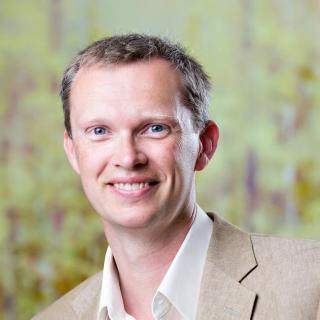Track: Modern CS in the real world
Location:
- Mountbatten, 6th flr.
Day of week:
- Tuesday
Computer Science research did not stop at QuickSort or the LR algorithm. In this track we'll cover topics such as probabilistic algorithms and data structures, new security and distributed algorithms, advances in typing, formal methods, new approaches to concurrency and much more. Why? Because we need to tackle ever more data in shorter periods of time - but our CPUs don't get much faster. Concurrency helps - but that just brings new problems to tackle, and meanwhile more moving parts just means more things that can fall over if we're not careful.
Time to sneak a peek at approaches real companies use to tackle this issues using Computer Science research and results from the last few decades.

by Peter Bourgon
Engineer @Weaveworks and Maintainer of Go Kit
by Matthias Radestock
Co-founder and CTO @Weaveworks, previously co-founded RabbitMQ
We built Weave Net to make it easy to network your Docker containers however you like. At its core, Weave Net is powered by an eventually-consistent, partition-tolerant, completely decentralised mesh. We're packaging this technology as Weave Mesh, so that you can build your own distributed applications with the same simplicity and reliability as Weave Net. In this talk we will explain the theory behind Weave Mesh, some of the key features we learned were important, and demonstrate some...
by Aysylu Greenberg
Software Engineer @Google
Modern systems in production rely on decades of computer science research. Over time, new architectural patterns emerge that enable more resilient and robust systems. In this talk, we'll discuss some of these patterns from systems I've worked on at Google and the related work that provide insights into the motivations behind them.
by Richard Kasperowski
Author of The Core Protocols: A Guide to Greatness
Open Space
by Anil Madhavapeddy
Engineer @Docker
Much cloud infrastructure consists of small microservices that interoperate via standard protocols as HTTPS. Unikernels are a new technique that specialises the deployed service into a tiny, domain-specific kernel that eliminates any unnecessary pieces and runs in a single address space. Some unikernels (such as MirageOS) even offer full memory safety down to the device drivers, and can run on tiny ARM devices as well as cloud hypervisors.
Tooling for unikernels is still nascent, but...
by Heidi Howard
Distributed Systems PhD Candidate @CambridgeComputerLab
In this talk, we explore how to construct resilient distributed systems on top of unreliable components.
Starting, almost two decades ago, with Leslie Lamport’s work on organising parliament for a Greek island. We will take a journey to today’s datacenters and the systems powering companies like Google, Amazon and Microsoft. Along the way, we will face interesting impossibility results, machines acting maliciously and the complexity of today’s networks.
Ultimately, we will...
by Matthew Sackman
GoshawkDB / LShift
It's well understood how logical clocks can be used to capture the order in which events occur. By extension, vector clocks encode when an event occurred across a distributed system. GoshawkDB reverses this idea: by analysing the dependencies between transactions, each participant calculates a vector clock that captures the constraints necessary to achieve strong serializability. The vector clocks from the different participants in a transaction can then be combined safely using the same...
Tracks
Covering innovative topics
Monday, 7 March
-
Back to Java
What to expect in Java 9 and Spring 5
-
Stream Processing @ Scale
Big data, fast-moving data. Practical implementation lessons on Real-time Data
-
DevOps & CI/CD
Lessons/stories on optimizing the deployment pipeline
-
Head-to-Tail Functional Languages
Free-range Monads, Tackling immutability, tales from production, and more...
-
Architecting for Failure
Your system will fail. Take control before it takes you with it
-
21st Century Culture from Geeks on the Ground
New ways to organise technology companies and workplace culture
Tuesday, 8 March
-
Architectures You've Always Wondered about
In-depth technical case studies from giants like: Microsoft, Netflix, Google, Twitter, and more...
-
Close to the Metal
Get efficiency back into your code, concepts like: cache efficient algorithm and lock free data structures
-
Containers (in production)
Real-world lessons on scalability and reliability in production container deployments
-
Modern CS in the real world
Real-world Industry adoption of modern CS ideas
-
Security, Incident Response & Fraud Detection
Master-level classes on building security into your system and responding to incidents when things go wrong.
-
Optimizing You
Keeping life in balance is always a challenge. Learning lifehacks
Wednesday, 9 March
-
Disrupting Finance
Technology advances in finance (blockchain, P2P, Machine Learning, API's)
-
Modern Native Languages
Modern native languages: Safe efficiency with Go, Rust, Swift
-
Full Stack Javascript
Level up Javascript with topics like Angular, React/ReactNative, Node, Mongo/Couch/Other, Falcor, GraphQL, etc
-
Data Science & Machine Learning Methods
A developer's data science and machine learning toolkit
-
Microservices for Mega-Architectures
Practical lessons on Microservices success.
-
Modern Agile Development
Revisiting Agile today and tackling challenges we are seeing in the wild



